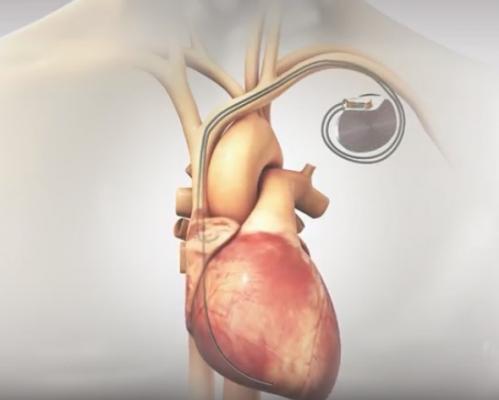
June 4, 2019 — Orchestra BioMed Inc. announced the presentation of two-year clinical data from the European Moderato I study of BackBeat Cardiac Neuromodulation Therapy (“BackBeat CNT”) for hypertension at the EuroPCR Conference, May 21-24 in Paris, France. Prof. Petr Neužil, M.D., Ph.D., CSc., FESC, head of the department of cardiology of Na Homolce Hospital in Prague, Czech Republic, presented data which showed a strong safety profile of BackBeat CNT and its ability to immediately, substantially and chronically lower blood pressure in patients with persistent hypertension (office BP > 150 mmHg) despite two or more anti-hypertensive medications and an indication for a pacemaker.
"In the Moderato I study, BackBeat CNT demonstrated an impressive 14.2 mmHg reduction in 24-hour ambulatory systolic blood pressure at three months as well as a substantial and sustained 23.4 mmHg reduction in office cuff systolic blood pressure out to two years. These statistically significant results are very exciting as they support the potential for BackBeat CNT to become a broadly applicable therapy for device-based hypertension management,” said Neužil, one of the principal investigators of the study.
BackBeat CNT is applicable to a wide range of hypertensive patients, including isolated systolic disease and patients with high blood pressure despite medical therapy. The Moderato I study enrolled patients with uncontrolled hypertension despite multi-drug medical management and who are also indicated for a pacemaker.
“We are encouraged by the data from Moderato I study showing substantial reduction in systolic blood pressure which could potentially reduce the risk of heart attack and stroke,” said Darren R. Sherman, president, chief operating officer and founder of Orchestra BioMed. “We recently completed enrollment of patients in the Moderato II study to further investigate the efficacy and safety of BackBeat CNT for the treatment of hypertension and are on track to present 6-month data later this year.”
Orchestra BioMed recently completed enrollment in the Moderato II study. The study is a prospective, 1:1 randomized double-blind active treatment with BackBeat CNT versus standard medical therapy trial in pacemaker-indicated patients with uncontrolled blood pressure and treated with at least one antihypertensive medication. The primary efficacy and safety endpoints will be assessed at six months.
“We are looking forward to Moderato II six-months results and the long-term potential of this exciting therapy to benefit high-risk patients with uncontrolled high blood pressure,” stated Neužil.
In 2019, Orchestra BioMed plans to initiate enrollment in a randomized, double-blind study to assess the clinical safety and effectiveness of BackBeat CNT in patients with hypertension in the absence of antihypertensive medications. The primary efficacy endpoint will be the difference in the average 24-hour ambulatory systolic blood pressure in the active group compared to control at three months after randomization.
Read the article "BackBeat Cardiac Neuromodulation Therapy Reduces Blood Pressure at Two Years"
For more information: www.orchestrabiomed.com


 January 05, 2026
January 05, 2026 









